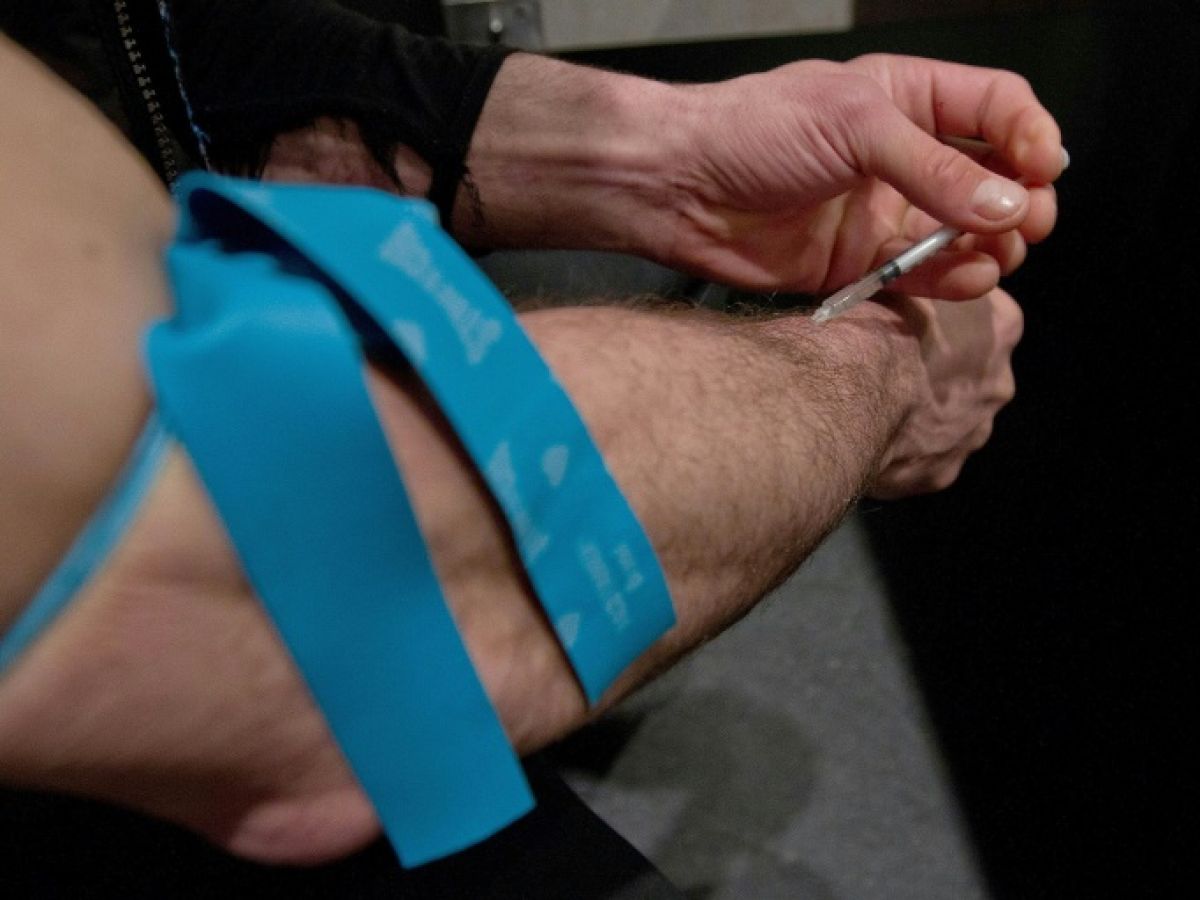The big turning point Twenty years after their establishment in Canada, shooting galleries are increasingly viewed negatively by elected officials and the population, in a country that was until now seen as an example in this area.
A few days ago, the Ontario government announced that it would close ten supervised drug consumption sites it funds by March. That's nearly a quarter of the centres in the country, which has 38 out of the hundred that exist worldwide.
A complete turnaround for the most populated province in the country (central-eastern), which wants to focus on treatment and healing and no longer on risk reduction.
"I don't consider watching someone inject an illicit drug to be health care," said Ontario Health Minister Sylvia Jones, announcing the closure of sites near schools or daycares.
A second setback in a few months for defenders of risk prevention policies.
Indeed, on the other side of the country, British Columbia, which decriminalized the possession of small quantities of hard drugs in January 2023, partially backtracked last April.
A large part of the population was protesting against the increase in drug use in public spaces.
Ms. Jones justified the closures in Ontario by citing "altercations, stabbings, shootings and even a homicide near injection sites."
According to her, crime rates are up to 250% higher in neighborhoods that have a center.
– Problem that increases –
Lauren Lemoine, 63, lives near the Somerset West clinic in Ottawa, in the heart of the Canadian capital.

He was recently attacked by drug addicts and said he has noticed they become "super violent."
Across the country, in Red Deer, Alberta, city councilor Vesna Higham is campaigning to close her city's site, which opened in 2018.
"Residents and businesses have had enough," she told AFP, citing vandalism and incivility. "What we have done so far has not worked, it only makes the problem worse. So now we have to change the way we approach this crisis," she said.
In Canada, the first shooting gallery opened in 2003, followed by dozens more within a few years as synthetic opioids gained ground in North America.

"More and more countries are starting to see drug use as a health issue, a social issue, not a criminal or moral issue," says Nicholas Boyce of the Canadian Drug Policy Coalition.
He recalls that the United Nations Commission on Narcotic Drugs adopted for the first time in March a resolution recognising harm reduction as a strategy.
For him, the Canadian turnaround is therefore "really discouraging" while the country is considered internationally "as one of the most progressive countries" in this area.
– “Effective response” –
On the ground, there is the same concern. A nurse at a Toronto site, Jessica Lyons is dismayed: their withdrawal will mean "bodies in the aisles and parks, in the bathrooms of Tim Hortons," a large fast-food chain.

But more importantly for her, it "fundamentally denies the right of a group of people to access the health services they need."
In 2011, the Supreme Court of Canada ruled that these sites were "an effective response to the catastrophic spread of infectious diseases and the high rate of overdose deaths."
Between 2016 and 2023, 44,592 people died from overdoses in the country, but none at a safe injection site.
For former addict Jonathan McAdam, harm reduction services are essential to keeping people alive until they are ready to seek help.
Getting over an addiction "can be scary because you have to face your demons," he told AFP. "People have to do it for themselves. Otherwise, they'll fall back into their old patterns." In his case, he believes it saved his life.
